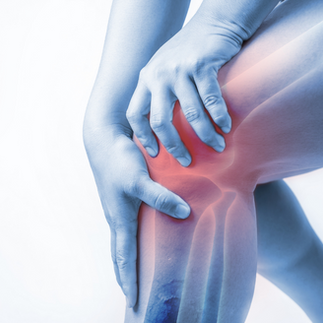Pain - Listen to what your body is telling you!🤕
- Feb 8, 2022
- 3 min read
Updated: Feb 9, 2022
Injury can happen to anyone, no matter your age, gender or athletic ability. However, there are some factors to consider that may make you more susceptible to certain injuries whether that be sports related injuries or non-sports related.
One factor that may affect your injury risk is pain.
Why do we get pain?
Pain is our body’s way of protecting us. When we do things that may cause our body (including muscles, bones, ligaments, skin etc) harm it responds by sending pain signals to that area so that you remove yourself from the harmful situation. Although you can still feel pain, your body perceives this pain as being less than if you were to pursue the harmful situation for longer, which may result in a more significant injury or pain.
For example, if you quickly increase your activity levels from sitting on the sofa all day to running 5KM you may start getting pain in your hip, knees, back or ankles. This is your body’s way of telling you it cannot handle such a significant increase in exercise so quickly. This pain will cause you to stop running or to reduce the distance you run to a level that your body is able to manage before it has caused any significant structural damage. Note that the pain described here is different to general muscle soreness (DOMS; delayed onset muscle soreness) that can be expected after exercise and is completely normal.
Let's see what may happen if your pain mechanism didn’t work;
You significantly increase your exercise levels and run 5KM straight away. You continue to do this and continue to run further and further every time at a great intensity. All the while, your body’s structures like your muscles, bones and ligaments are not coping with the load you are placing on them. If your body’s pain mechanism isn’t working you won’t know that your body is not coping and you will continue to exercise and push your body so much that it will break (quite literally). You will start getting muscle injuries, ligament injuries and stress fractures. The tissues of your body will not be able to work efficiently and you will be left with a significant injury. Compare this to when your body’s pain mechanism IS working and it would cause you to stop well before you are able to do any significant structural damage to your body.
This is why it is completely normal and essential that we experience pain.
Why does pain make me more susceptible to injury?
In some circumstances pain can make you more susceptible to injury or to more intense pain, and this is mainly related to the psychological impact experiencing pain has on us as an emotion.
If we move into a position that causes pain our brain will start to associate this position with pain. If this continues, just the thought of completing this movement can cause stimulation in our brain that makes us feel pain........just by thinking about it! Naturally you will start to avoid this movement as your brain “guards” you from experiencing that pain. If you are in a sporting situation where you should perform this painful movement, the guarding system in your brain will be stimulated and you will therefore alter your movement pattern. It is this altered movement pattern due to guarding, that puts you at increased risk of injury.
This can also happen in non-sporting circumstances, especially with people who suffer with back pain. Often, bending forwards or backward may cause pain and their brain learns this so they avoid this movement. If you stop bending forwards and backwards you will alter your movement patterns to be much stiffer and tense. It is the tension and stiffness from these guarding movements that puts you in more discomfort than if you were to actually perform the movement normally.
Guarding movement is defined as a behaviour that is aimed at preventing or alleviating pain and which includes stiffness, hesitation, and bracing. It is almost always a consequence of fear of movement due to its association with pain.
Top Take home Tips to stop pain causing injury!
Relax and move as normal as possible to stop the effects of guarding
Some pain is beneficial, and we need to experience “good” pain to know what levels of exercise our body is and isn’t able to cope with
Seek help from a medical professional like a physiotherapist, if you start experiencing musculoskeletal pain of any kind. The sooner you seek advice the less likely your pain will lead to further injury
Hopefully you now have a better understanding of pain and its relationship with injury. If you would like references for any of the information above please get in touch.













Comments